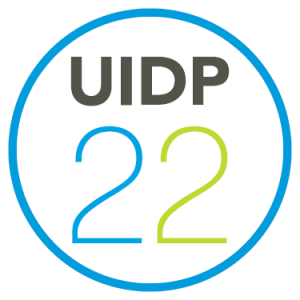When it comes to U-I collaboration, where do the Social Sciences fit?
 Two of the speakers at the UIDP22 panel, U-I Social Sciences Collaborations, came from online giants Google and Facebook. But the topics they addressed did not center upon the “digital miracles” of the Internet, such as search engines or social media, nor did they touch upon about how these companies use big data, artificial intelligence, computer science, or statistics. Instead, they talked about how they engage social scientists as integral partners in their research and development programs.
Two of the speakers at the UIDP22 panel, U-I Social Sciences Collaborations, came from online giants Google and Facebook. But the topics they addressed did not center upon the “digital miracles” of the Internet, such as search engines or social media, nor did they touch upon about how these companies use big data, artificial intelligence, computer science, or statistics. Instead, they talked about how they engage social scientists as integral partners in their research and development programs.
Google does research that involves machine learning, an area where social sciences are critical. Panelist Neal Patel the head of human/social dynamics at Google described supervising a machine and teaching it human behavior, such as clicking on things, sorting tasks, looking at what people write. He went on to describe the importance of social scientists in the cycle of research that needs to continue in order to improve the performance of the machine
Patel also described two marketing campaigns, one for Pfizer and one for Goodyear (both are UIDP members) where the successes of these campaigns were based on insights gained from research by anthropologists and other social scientists. He suggested that if Google wants to use data well, the company needs to think about how to form partnerships between industry and social science.
Lauri Kanerva, Research Management Lead, Facebook, also emphasized the important role of social scientists in the company’s research. Facebook has used social scientists to research topics such as online bullying and eating disorders. These topics that ultimately answer a product-related questions. Research collaborations are common for the company, which has collaborated with just under 100 researchers from 46 schools in eight countries.
Kanerva described receiving a lot of requests for data, with emails arriving weekly from academics from all over the world, telling Facebook, “we don’t want to bother you, we just want your data!” He went on to say Facebook looks at every request as a collaboration and wants an internal Facebook researcher to be 100% responsible for the research.
Panelist Denise Bulling, Senior Director, University of Nebraska Public Policy Center,  concurred with Kanerva’s advice that faculty should be thinking in terms of collaboration, rather than just taking data and doing their own research. Bulling described how industry partners will expect regular updates on how the research is going at every step of the way, including wanting to know the obstacles the researchers face and how the company can help remove them. She cautioned that university researchers shouldn’t just expect to hand over finished products to industry partners.
concurred with Kanerva’s advice that faculty should be thinking in terms of collaboration, rather than just taking data and doing their own research. Bulling described how industry partners will expect regular updates on how the research is going at every step of the way, including wanting to know the obstacles the researchers face and how the company can help remove them. She cautioned that university researchers shouldn’t just expect to hand over finished products to industry partners.
While there is a place for social scientists in U-I collaborations, Mario Scalora, Professor, Psychology, University of Nebraska-Lincoln, pointed out that faculty don’t typically have an entrepreneurial mindset, especially in social sciences, where people often go on the academic track. He described not being promoted or granted tenure because he did collaborations but because of the data he gathered through the collaborations.
Both Patel and Kanerva offered advice for universities that would like to collaborate with their companies. Patel encouraged professors and administrators to invite people from industry to talk to students and faculty, and Kanvera suggested engaging with people at conferences and following up with a phone call. Both agreed that personal relationships are extremely important.


